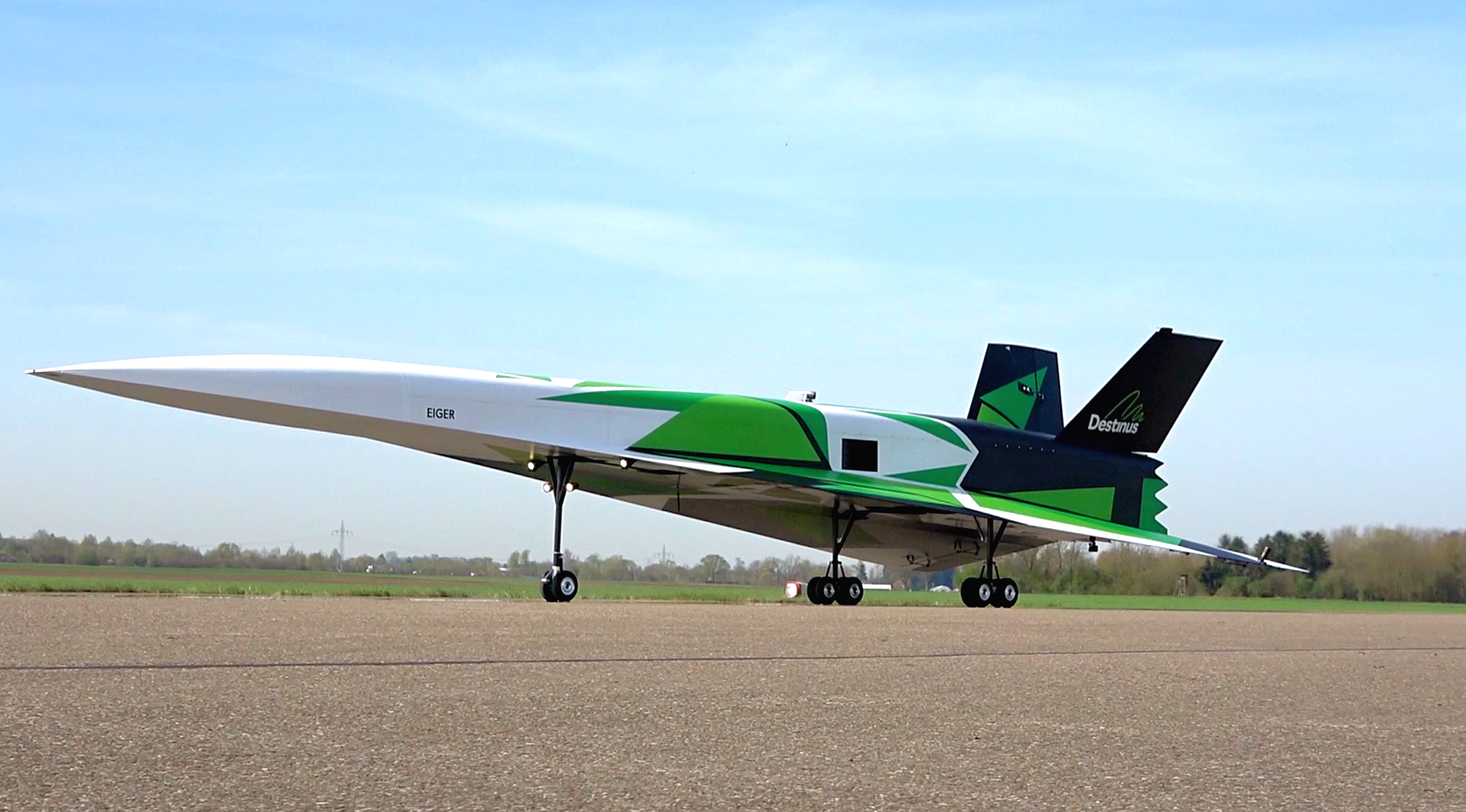Switzerland-headquartered Destinus has been gathering pace with its goal of developing its airplane/rocket hybrid hypersonic vehicle. The company is determined to transport cargo between continents in just a couple of hours.
Hypersonic commitment
The firm proudly announced this week that it signed a letter of intent (LOI) with Brazil-based on-demand air charter platform Flapper. The move is part of a commitment between the two to introduce express air cargo routes between Latin America and Europe.
Destinus touts its hyperplane to become the fastest delivery vehicle in the world. The design pulls together the technological progress of a spaceplane with the physics of a glider to "meet the demands of a hyper connected world"
The fully autonomous plane will have an actively cooled heat shield. Moreover, the hydrogen fuel supporting the aircraft is made from 100% renewable energy sources, with Destinus highlighting the environmental and cost benefits to be had with this approach.
Opening up opportunities
We have all seen how the likes of Amazon has pushed the boat out in recent years to allow consumers to get their much-needed everyday goods delivered to their house in just a few hours. While it seems impressive that groceries from a nearby warehouse can be carried door to door at a click of a button in such a quick amount of time, ‘hyperexpress’ delivery could enable the same capabilities but on a global scale.
For instance, with the Destinus Hyperplane traveling to near-space heights at 15 times the speed of sound, it could cut a delivery flight between Frankfurt, Germany to Tokyo, Japan from 11 hours and 30 minutes to just an hour and 30 minutes. This approach opens up a whole new range of prospects for delivery companies.
Cargo accounts for approximately 30% of Flapper’s business. The company supports the transport of items such as emergency spare parts, medical supplies, mining products, and diplomatic articles.
During the early period of the pandemic, airlines all across the globe urgently rushed to deliver medical equipment in an effort to control the impact of COVID-19. Additionally, cargo increasingly became a larger part of airline business models, a factor that has remained today.
As Flapper Paul Malicki puts it:
“In an emergency, seconds count. The supply chain disruption caused by the pandemic permanently placed aviation at the forefront of specialized cargo operations. By using Destinus’ hydrogen-powered aircraft we intend to shorten the delivery times for existing long-range cargo missions to a fraction of what it is today.”
Stay informed: Sign up for our daily and weekly aviation news digests.
Significant growth
According to IATA, air cargo volumes increased by 18.7% year-on-year in 2021. Additionally, volumes were 3.5% above the pre-crisis 2018 high. Looking ahead, express air freight services are expected to grow at a compound annual growth (CAGR) rate of 7.2% by 2027.
So, the introduction of the Destinus Hyperplane could shake up this ever-growing industry. With hypersonic commercial flight set to become a reality quicker than expected, it would truly become a small world with such technology.
What are your thoughts about the Destinus Hyperplane? What do you make of the prospects to be had with the aircraft? Let us know what you think in the comment section.

